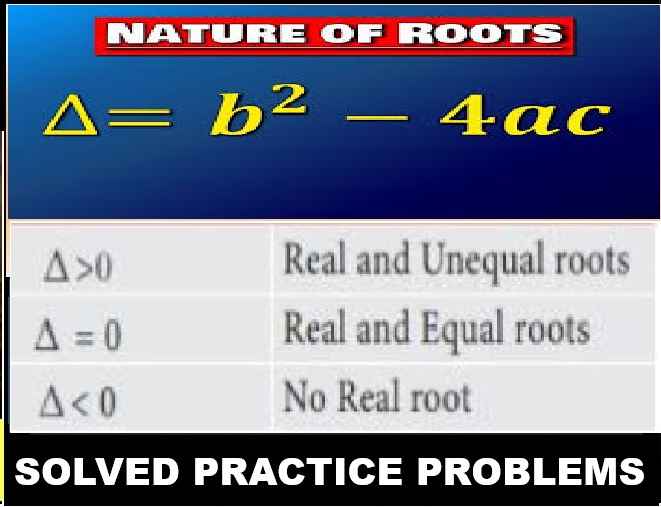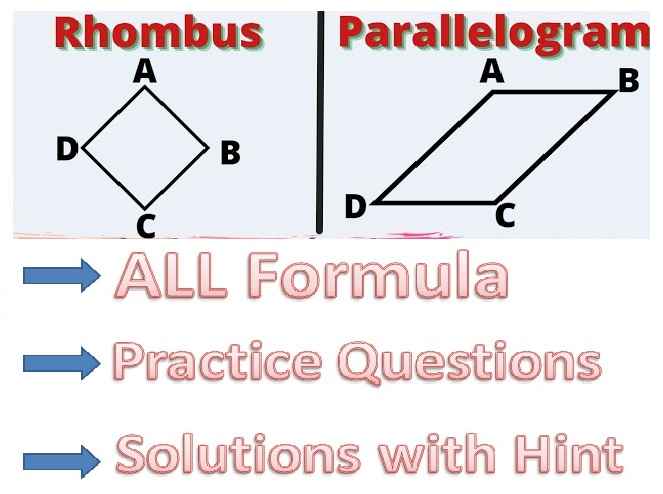Communicable Diseases Class-6th Goyal Brothers ICSE Biology Solutions Chapter-7 Health And Hygiene Unit-2 Communicable Diseases. We Provide Step by Step Answers of Objectives, Fill in the blanks , Find the odd one out, giving reason. Definitions , Match the followings and Short/Long Question Type answers of Chapter-7 Unit-2 Health And Hygiene. Visit official Website CISCE for detail information about ICSE Board Class-6.
Communicable Diseases ICSE Class-6th Goyal Brothers Biology Solutions Chapter-7 Unit-2
| Board | ICSE |
| Class | 6th |
| Subject | Biology |
| Book Name | Goyal Brothers |
| Chapter-7 | Health And Hygiene |
| Unit-2 | Communicable Diseases |
| Topic | Solution of exercise questions |
| Session | 2023-24 |
Communicable Diseases ICSE Class-6th Goyal Brothers
Biology Solutions Chapter-7 Unit-2
Que: I. Multiple choice questions. Tick (√) the correct choice :
Question 1: Which of the following diseases is spread through coughing and sneezing ?
(a) Diphtheria
(b) Hepatitis
(c) Tetanus
(d) Polio
Answer: option (a) Diphtheria is correct.
Question 2: Which of the following diseases is transmitted by a carrier ?
(a) Dengue
(b) Tetanus
(c) Hepatitis
(d) Common cold
Answer: option (a) Dengue is correct.
Question 3: Which of the following diseases is spread through infected rat ?
(a) Hepatitis
(b) Dengue
(c) Plague
(d) Common cold
Answer: option (c) Plague is correct.
Question 4: A disease spread by the bite of a mad dog is
(a) Rabies
(b) Plague
(c) Polio
(d) Measles
Answer: option (a) Rabies is correct.
Question 5: Which of the following is a disease caused by bacteria ?
(a) cholera
(b) AIDS
(c) malaria
(d) rabies
Answer: option (a) cholera is correct.
Question 6: Which of the following is not a viral disease ?
Question 7: Kwashiorkor is caused by
(a) smoking
(b) worms
(c) virus
(d) imbalance in diet
Answer: option (d) imbalance in diet is correct.
Question 8: Deficiency of vitamin C causes
(a) scurvy
(b) beriberi
(c) rickets
(d) skin diseases
Answer: option (a) scurvy is correct.
Question 9: Deficiency of vitamin K can cause
(a) hemorrhage
(b) bleeding gums
(c) rickets
(d) skin diseases
Answer: option (d) skin diseases is correct.
Que: II. Fill in the blanks :
- Over – eating causes a disease called ..obesity….
- Food poisoning is caused by …bacteria or a virus….
- One of the diseases caused by protozoa is …Malaria and Kala-azar…
- Protruding belly is a symptom noticed in …Kwashiorkor…
- The diseases kwashiorkor results the deficiency of …dietary proteins…
- The deficiency of mineral …calcium… is responsible for tooth decay.
Que: III. Find the odd one out, giving reason :
Pneumonia, cholera, leprosy, measles
Answer: Measles: is the odd-one out as it a disease caused by a virus while the rest three are bacterial diseases.
Kwashiorkor, scurvy, beriberi, night blind-ness.
Answer: Kwashiorkor: Kwashiorkor is the odd-one out as it is a protein deficiency. disease while the rest three are vitamin deficiency diseases.
Goiter, tooth decay, anemia, rickets.
Answer: Rickets:
- Vitamin D deficiency causes rickets.
- It can result in weak bones and decaying teeth.
- The source of prevention of rickets is incorporating fish liver oil, eggs, and butter into the diet, sunlight is also a good source of vitamin D.
Que: IV. Define the following :
(a) Vector
Answer: A vector is a living organism that transmits an infectious agent from an infected animal to a human or another animal. Vectors are frequently arthropods, such as mosquitoes, ticks, flies, fleas and lice
(b) Droplet infection
Answer: Droplet infection is an infection that is spread from one person to another by droplets of moisture released from the upper respiratory tract either by sneezing or coughing.
(c) Malnutrition
Answer: Malnutrition is an imbalance between the nutrients your body needs to function and the nutrients it gets.
(d) PEM
Answer: Protein Energy Malnutrition (PEM) is a deficiency disease caused in the infants due to ‘Food Gap’ between the intake and requirement.
Que: V. Name the following :
Question 1: Two diseases each caused by bacteria, protozoa and virus.
- Bacteria: Cholera and typhoid.
- Protozoa: Malaria and dysentery.
- Virus: Polio and measles.
Question 2: Organism which caused malaria.
Answer : Malaria parasites are micro-organisms that belong to the genus Plasmodium. There are more than 100 species of Plasmodium, which can infect many animal species such as reptiles, birds, and various mammals. Four species of Plasmodium have long been recognized to infect humans in nature.
Question 3: Causes of obesity
- eating large amounts of processed or fast food – this is food that’s high in fat and sugar.
- drinking too much alcohol – alcohol contains a lot of calories.
- eating out a lot – food cooked in a restaurant may be higher in fat and sugar.
- eating larger portions than you need.
Question 4: Three vitamin-deficiency diseases.
- Scurvy: It is caused by a deficiency of vitamin C.
- Rickets: It is caused by the deficiency of vitamin D.
- Anaemia: It is caused by the deficiency of iron.
- Goitre: It is caused by the deficiency of iodine.
Question 5: Three mineral-deficiency diseases.
Answer : Three mineral-deficiency diseases:
|
Types of Minerals |
Deficiency Diseases |
| Calcium | Brittle bones, excessive bleeding |
| Phosphorus | Bad teeth and bones |
| Iron | Anemia |
Que: VI. Mention the food constituents which may be lacking in one’s diet, in case of the following :
Question 1: A child having rickets.
Answer : Rickets is a condition that affects bone development in children.
Question 2: A person suffering from scurvy.
Answer : bleeding gums, loosened teeth and bleeding under your skin.
Question 3: A person suffering from beriberi.
Answer : Beriberi is a deficiency of thiamine, more commonly known as vitamin B1.
Question 4: A child suffering from kwashiorkor.
Answer : Kwashiorkor most commonly affects children, particularly in developing countries with high levels of poverty and food insecurity.
Question 5: A person suffering from poor eyesight.
Answer : Some of the most common causes of low vision include age-related macular degeneration, diabetes and glaucoma.
Question 6: A person suffering from anemia.
Answer : This results in symptoms such as fatigue, weakness, dizziness and shortness of breath.
Que: VII. Answer the following questions :
Question 1: List the causes of diseases.
Answer : Infectious diseases can be caused by:
- Bacteria : These one-cell organisms are responsible for illnesses such as strep throat, urinary tract infections and tuberculosis.
- Viruses : Even smaller than bacteria, viruses cause a multitude of diseases — ranging from the common cold to AIDS.
- Fungi : Many skin diseases, such as ringworm and athlete’s foot, are caused by fungi. Other types of fungi can infect your lungs or nervous system.
- Parasites : Malaria is caused by a tiny parasite that is transmitted by a mosquito bite. Other parasites may be transmitted to humans from animal feces.
- Direct contact : An easy way to catch most infectious diseases is by coming in contact with a person or animal who has the infection.
- Indirect contact :Disease-causing organisms also can be passed by indirect contact. Many germs can linger on an inanimate object, such as a tabletop, doorknob or faucet handle.
- Food contamination : Another way disease-causing germs can infect us is through contaminated food and water.
Question 2: What are deficiency diseases?
Answer : A balanced diet is extremely important for the good health of a person. Any imbalance in the diet might lead to excess or insufficient intake of certain nutrients. Insufficient intake of a particular nutrient can lead to a deficiency disease. Let us have a detailed look at different types of deficiency diseases and the methods of prevention of deficiency diseases.
Question 3: List the preventive measures against diseases caused by viruses.
Answer : Viral disease:
- Some of the diseases that are caused by the virus are the common cold, polio, measles, rabies, chickenpox etc.
- Viral diseases are transmitted through air, direct contact with the infected person, contaminated food, water etc.
The preventive measures against diseases caused by viruses are:
- An infected person must cover the mouth and nose while sneezing and coughing.
- The patient should be isolated from all public places.
- The patient’s clothes must be changed daily and washed separately using an antiseptic.
Question 4: Give the symptoms of kwashiorkor and marasmus.
Answer : The symptoms of kwashiorkor and marasmus:
| Marasmus symptoms | Kwashiorkor symptoms |
|---|---|
| weight loss | an inability to grow or gain weight |
| dehydration | edema, or swelling of the hands and feet |
| stomach shrinkage | stomach bulging |
Question 5: Why should we not eat polished rice ?
Answer : Why polished rice should be avoided:
- Much of the food we eat is “processed” food.
- Rice is a rich source of carbohydrates.
- When rice is polished some nutrients such as vitamins and minerals are lost.
- Polished rice and wheat flour are examples of “processed” foods.
- Processing removes many of the B vitamins.
- Beriberi is caused by a lack of vitamin B₁.
- Thus, we should not try to eat foods that are not processed or polished.
Que: VIII. Match the items in Column A with those in Column B :
| Column A | Column B |
| 1. Beri-Beri | (a) Vitamin C |
| 2. Anemia | (b) Vitamin D |
| 3. Scurvy | (c) Vitamin A |
| 4. Rickets | (d) Vitamin B1 |
| 5. Goiter | (e) Iron |
| 6. Night blindness | (f) Goiter |
Answer :
| Column A | Column B |
| 1. Beri-Beri | (a) Vitamin B1 |
| 2. Anemia | (b) Iron |
| 3. Scurvy | (c) Vitamin C |
| 4. Rickets | (d) Vitamin D |
| 5. Goiter | (e) Goiter |
| 6. Night blindness | (f) Vitamin A |
— : end of Communicable Diseases Class-6th Goyal Brothers Prakashan:–
Return to- ICSE Class -6 Goyal Brothers Biology Solutions
Thanks.
Please share with your friends if you find it useful.


